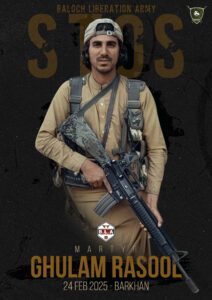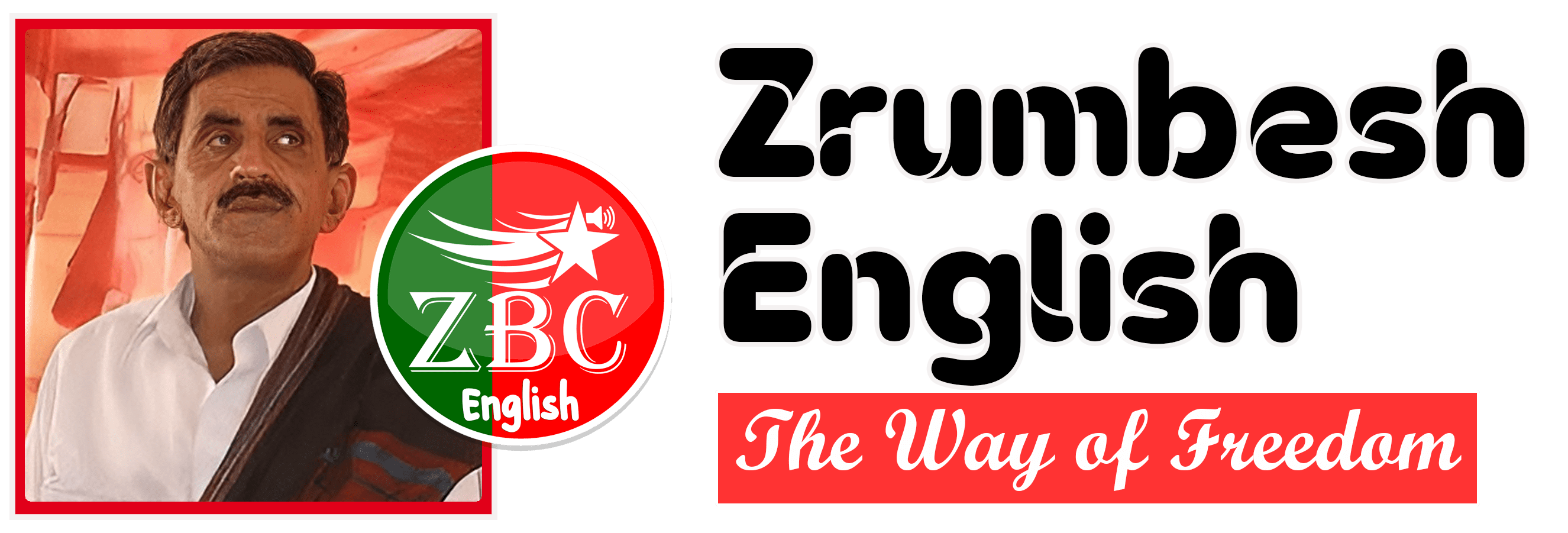Barkhan, Balochistan – The Baloch Raji Aajoi Sangar (BRAS), an umbrella Organization of Baloch independent militant groups, has claimed responsibility for multiple attacks on Pakistani security forces in the Barkhan area, resulting in the alleged deaths of 13 Pakistani army personnel and injuries to eight others. The group also reported the death of one of its fighters, Ghulam Rasool Marri, during the clashes.
According to a press release issued by BRAS, the attacks took place on February 23, 2025, when Pakistani forces launched an operation in the Gulo Shamchudi area of Barkhan. BRAS claims its fighters ambushed the advancing troops, initially killing five soldiers and forcing a retreat.The following day, BRAS alleges it lured Pakistani forces into a trap by making a temporary camp visible. The group then launched coordinated attacks from two directions, reportedly killing eight more soldiers and injuring at least eight others.
BRAS claims the Pakistani troops fled, abandoning motorcycles.Following the attacks, BRAS alleges that Pakistani forces retaliated by targeting civilians, forcibly disappearing eight individuals, burning down houses, and cutting off food supplies to the area.

BRAS confirmed the death of Ghulam Rasool Marri, also known as Munshi Eidu, during the fighting. Marri, a member of the Baloch Liberation Army (BLA), an ally of BRAS, was reportedly given a military funeral by fellow fighters. BRAS described Marri as a veteran fighter who had served for 15 years and was a member of the BLA’s Special Tactical Operations Squad (STOS).The group also claimed responsibility for seizing a supply vehicle belonging to the Pakistani army and setting a truck and four motorcycles on fire in a separate operation in Barkhan.
BRAS issued a warning to the Levies Force, a local paramilitary force, urging them to avoid cooperating with the Pakistani military. The group stated that while they had previously shown leniency towards local forces, they would be targeted if they continued to assist the Pakistani army. BRAS also called on tribal leaders to prevent their relatives from participating in what it described as “Baloch-genocidal acts.”


